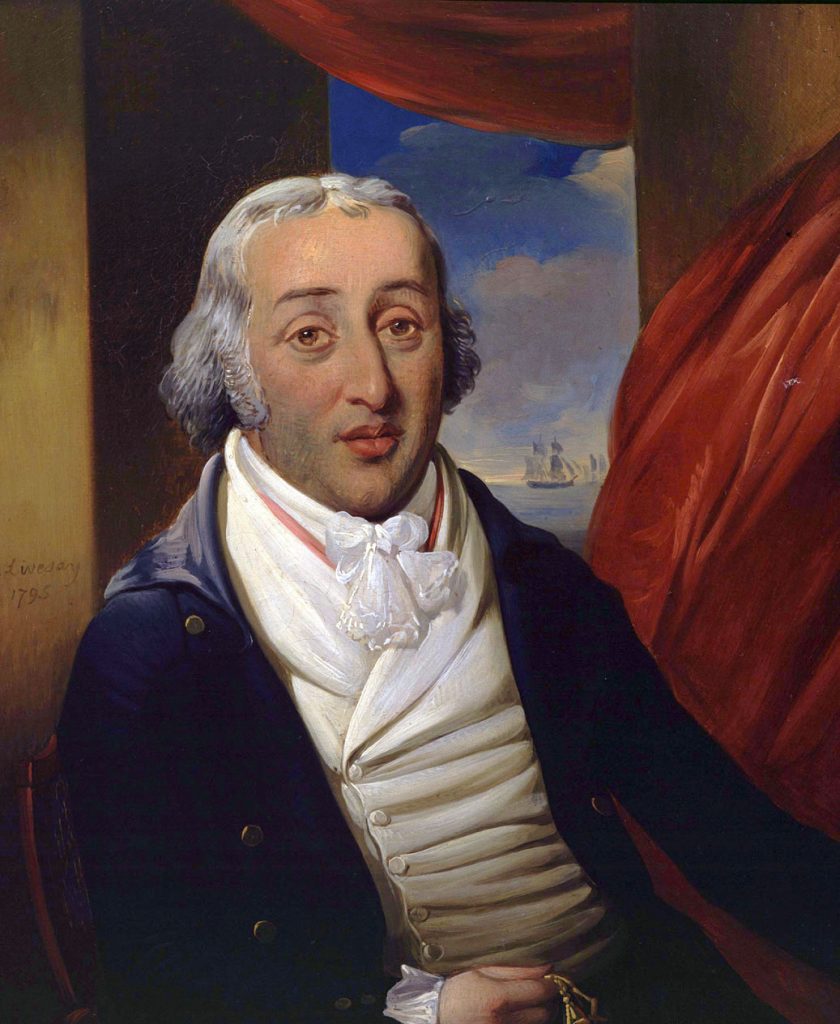Moses Hart was the eldest of eleven children born to Dorothea Catherine Judah and Aaron Hart of Trois Rivières in Quebec. Aaron Hart had arrived in Canada from England in 1724 with Sir Frederick Haldimand, under whom he served during the English campaign to wrest Canada from France during the Seven Years War (1756-1763). He rode with Lord Jeffrey Amherst into Montreal in 1760, but eventually settled in Trois Rivières. There he came to acquire significant land holdings and engaged in lucrative trade, managing to win himself a provincial title as Seignior of Beçancourt and Sainte Marguerite and owner of the Fief Marquisat Dusable.
Moses, as the eldest son, inherited both the title and the titular lands at his father’s death in 1800, and eventually added a title of his own when he acquired the Seigniorie of Courval. Yet his most important mark on Canadian life involved his avid pursuit of civil rights for Jews, particularly the right to hold elective and appointed offices. In 1797 he purchased military lands from discharged soldiers in Upper Canada and applied for a patent. When this application was denied by a court the following year, solely on the basis of the fact that Hart was a Jew, he pursued an appeal, which he won. In 1796 he ran for a seat in the House of Assembly of Lower Canada. Though he lost this race, he never gave up the desire for a career in politics, running subsequently for assembly seats in 1819, 1820, 1843-1844—the last when he was age 75. After 1821, he fought a running battle to secure an officer’s commission in the local militia for his son, Areli Blake Hart, in the face of firm opposition from the Anglo-Canadian regime to give the commissions to a Jew.
In 1799 Moses married his cousin Sarah Judah. They had six children, and their descendants have continued to hold a place of prominence in the Jewish life of Quebec ever since.
